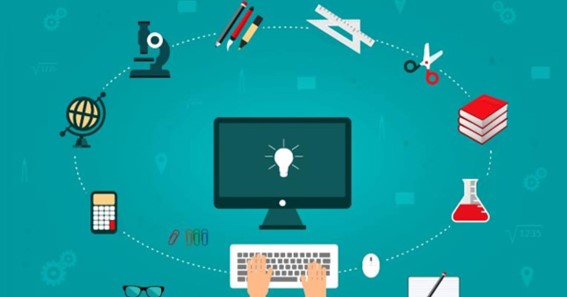For the last 10 years technology advances in a sphere of healthcare are rapidly evolving and improving the work and lives of doctors and patients. Healthcare software development solutions are altering how health services are offered, from wearable gadgets to telemedicine solutions that engage patients and medical professionals.
In the field of public health, technology facilitates how experts obtain and evaluate data to deliver better care to communities. Public health practitioners have several chances to develop and implement innovative public health technology solutions that may have a significant influence on patient care.
If you’re eager to learn about the technological developments propelling the healthcare business toward digital transformation this year, let’s take a brief, upbeat look at some of the top emerging and game-changing healthcare technology solutions for 2022.
1. Artificial Intelligence (AI)
Healthcare artificial intelligence solutions has made big waves in various sectors as a crucial tool for the healthcare business.
-
Data
It is the most important aspect influencing AI’s healthcare success. The system will function best if we offer additional data of higher quality and breadth. Your AI team must include capable software engineers and data scientists who can work together to get the best outcomes.
-
Disease Diagnosis and Drug Development
AI has various applications in the healthcare industry. Microsoft developed a radiotherapy AI technology that speeds up the 3D shaping operation for patients. Such technologies shorten the time it takes to diagnose cancer and aid in determining which medications to employ for each individual.
Biopsies, which require tissue removal for processing, were the only reliable cancer diagnostic procedure for decades. Computerized imaging of mutated cells is used in modern histopathology. WSI (whole slide image) scans are interesting, but analyzing them takes hours of zooming out and in and scrolling. AI systems may use algorithms and machine learning convolutional algorithms to evaluate WSI.
Click here – Why Is Dogecoin The Cryptocurrency Of The Future
-
Mental Health
AI may identify mental problems induced by chemical changes in the brain. Early dementia identification is one of the best strategies to cure or prevent symptoms. Such models might detect or self-diagnose Alzheimer’s disease years before serious symptoms appear.
2. Augmented Reality (AR), Virtual Reality (VR), or Metaverse
Virtual and augmented reality services helps healthcare sector in many ways. AR/VR perform well in medical education, giving simulated instruction that complements traditional school. AR glasses superimpose 3D images and CAT scans to help doctors view inside a patient’s body. This revolutionizes “keyhole” surgery visibility.
Future improvements should see the medical environment mix more with virtual and augmented reality based on the short learning curve and cheap usage cost.
There is much disagreement regarding whether Facebook’s rebranding meta and emphasis on social virtual reality interactions are acceptable. Metaverse development seems to have some potential in healthcare institutions as well. For instance, the Virtual Reality Medical Center offers VR treatment to treat phobias, such as PTSD and fear of heights.
Meta’s cartoon-style sessions may be beneficial for VR treatment, but their usefulness as a substitute for standard teleconferencing is unknown. Spatial audio might enhance telemedicine systems by giving a more immersive digital interaction.
3. Internet of Things (IoT)
With the increasing popularity of IoT healthcare solutions, including wearables, their value in healthcare businesses has expanded dramatically. Several have dubbed this microprocessing trend the Internet of Medical Things for telemedicine technology applications.
-
Creating IoMT Solutions
Manufacturers utilize proprietary protocols, making computer communication difficult. Local microcontroller buffering must be made more robust. Environmental variables may disrupt communications, making security a concern.
-
Smart Pills
They are electronics that provide doctors with patient data. The first FDA-approved smart medication was released in 2017, and it has the potential to change how we interact with our bodies online.
-
Wearables
Wearable technology is a major healthcare breakthrough. Smartwatches are getting increasingly popular and might be utilized in healthcare. Heart rate is one of the most fundamental health metrics a smartwatch can provide.
In addition, smartwatches are becoming more capable of tracking their users’ blood vitals. This data may help doctors diagnose and counsel patients.
4. Telemedicine
Telehealth uses technology to improve the effectiveness of interaction between healthcare practitioners, patients, and clinics. Electronic communications features advanced the healthcare experience by allowing access to remote services.
An app that allows patients and doctors to communicate quickly simplifies the patient experience and saves professionals time. Expect to see technology detecting and supporting at-risk patients for early treatments in the future.
5. Big Data
Big Data might help healthcare firms discover points of weakness and get a better grasp of their market. Big data gathers information about a firm from various sources, such as social networks, online purchases, and money transfers to find patterns and trends for long-term usage.
Furthermore, with a better awareness of the industry, your healthcare marketing, and sales teams have a better time discovering your target consumer. It is key to develop buyer personas, which gather demographic data on what your clients desire and require and the channels you may contact.
Whether it’s the current super-trend of the digital revolution or one of the near-horizon innovations set to disrupt the sector, most healthcare businesses will rely on underlying digital technologies to drive their company forward. You must work with a software engineering team that understands your demands and goals.
Click here – Why start accounting classes and how to pass them?






